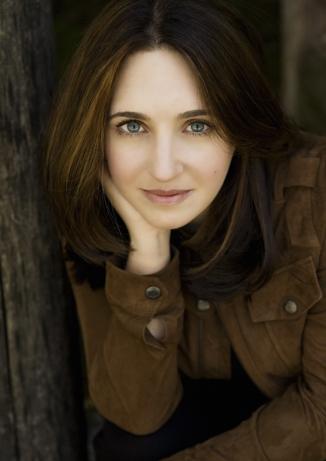Simone Dinnerstein: Precise Aim at Bach’s ‘Variations’
By • February 28, 2013 0 1718

Listening to Simone Dinnerstein talk about her life and her music– as well as Johann Sebastian Bach, her relationship with contemporary music and collaboration with Tift Merritt–is a little like listening to her play “The Goldberg Variations.” There’s something soothing and precisely clear in how she replies to questions, explains and speaks. When you listen to Bach’s “Variations,” time seems to pass swiftly but with a valuable motion.
“The Goldberg Variations” is a composition that for classical pianists is a kind of mountain top work. It sits there waiting like a Lear or a Hamlet for actors. It’s challenging, profound, difficult, like much of Bach’s work.
“It is very soothing,” she said. “And difficult. And I came to it late, I suppose. And doing it, and making the recording the way I did at a time in my life where you wouldn’t expect it, it changed everything. So many people have done it, and I spent a lot of time listening to Glenn Gould, who is famous for playing the “Variations.” And I’ve heard a harpist play the music and a jazz musician. And I knew mine would be mine–different.”
Dinnerstein, who plays “The Goldberg Variations” presented by the Washington Performing Arts Society at the Music Center at Strathmore on Sunday, Feb. 24, 7 p.m., talks about the piece in ways that reflect her place in life which seems a little odd, given that one often thinks of classical musicians as living in a rarefied world of concert halls in Berlin or New York, filled with gowns and tuxedos. Dinnerstein certainly lives in that world, although she finally arrived in it after some years of struggling to gain a foothold there, but she also lives in Brooklyn with her husband Jeremy Greensmith, an elementary school teacher at P.S. 321, and her son Adrian. Brooklyn is where she grew up with her parents the painter Simon Dimmerstein and Rachel Dinnerstein.
While performing in small venues and without the high profile she has now, she decided to take on the “Variations” about the time she became pregnant. “My husband thought I was nuts,” she said. She famously self-financed a recording, an achingly, wonderfully beautiful work on Telarc records which in a complicated but startling way skyrocketed to become the top classical recording of 2007. This was followed by “Bach: A Strange Beauty,” a live performance with the Kammerorchester Staatskapelle Berlin, which explores different aspects of Bach’s music; it includes two keyboard concerti and solo works. That CD also hit No. 1 on the Billboard classical music charts and was called “a stunning recital, engineered with tactile precision” by Grammaphone.
“Bach is remarkable because although he was very much a man of his time, his music sounds modern, contemporary, as if he were speaking to us across time,” she said. “Bach’s music seems to me to come from the ground up into the sky. He certainly speaks and spoke to me.”
Now, Dinnerstein is touring, and often, all over the world, noted for the intensity in her performances. She has become what the New Yorker Magazine called “The pianists’ pianist of Generation X.”
If you watch some of the videos available on the internet, including her own site, of her playing, you certainly see that emotional depth of feeling. But there’s also a kind of bearable lightness of being in her deftness—playing the “Variations” certainly makes you notice that one hand surely knows what the other is doing.
Dinnerstein has played in what may be called her pre-Goldberg years in small venues, universities and churches. Her familial life brings her in touch with herself in ways that many performers don’t seem to experience. In conversation, she can sound both ethereal and very grounded. She has the performance chops and the Julliard training, but there’s another quality of the life fully lived outside and away from the piano which informs her performance. It is her willingness to stretch boundaries. She grew up listening to the Beatles and Dylan as well as Gould.
She believes in collaboration, of crossing boundaries and genres. “I think sometimes going to a concert is a kind of remembered experience, restricted,” she said. “I want to change some of the boundaries of that.” Accordingly in a new program, she’s combined elements of classical music with cabaret, spoken poetry, improvisation and narration, a program she debuted last year in the West Village club, Le Poisson Rouge. She has also performed at the Maryland Correctional Institution for Women with the Baltimore Symphony Orchestra which was part of her BSO debut.
In Brooklyn, she founded Neighborhood Classics, a series hosted by the New York Public School System. It launched at P.S. 321 where her son attended and where her husband teaches.
This month, will mark the release of a new album called “Night” on which Dinnerstein collaborated with the singer-songwriter Tift Merritt, with original songs by Merritt, Brad Mehldau and Patty Griffin as well as classical selections. Merritt, a highly eclectic performer who defies category, nevertheless is often thrown in with folk and country music, neither of which entirely defines her. They met after working together last year at the National Museum of Women in the Arts.
(Simone Dinnerstein’s Feb. 24 concert at Strathmore will have no intermission and no late seating.)

